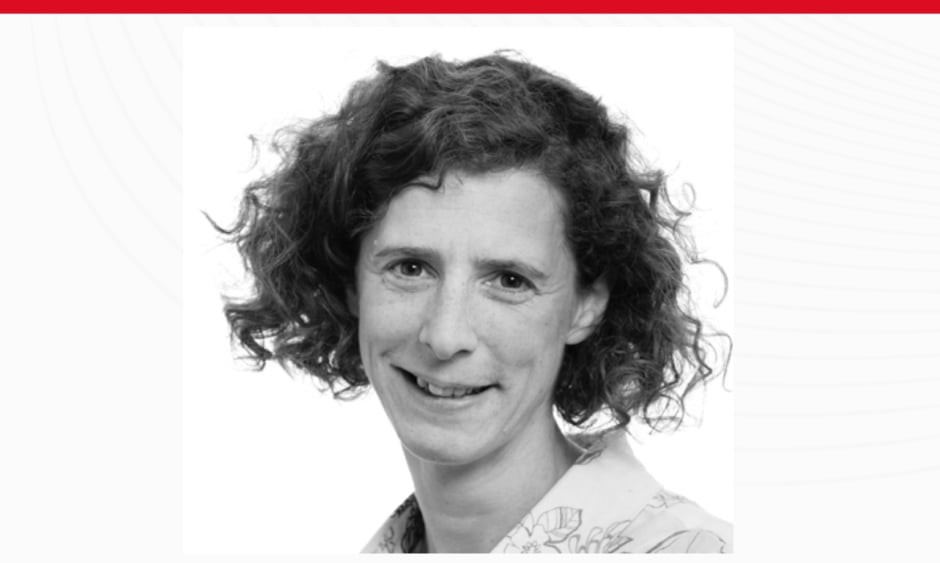Sarah Walmsley | Professor of Respiratory Medicine and Honorary Consultant in
Respiratory Medicine, University of Edinburgh, UK.
What initially sparked your interest to pursue a career in respiratory medicine?
As a medical student in Edinburgh, I was inspired by the opportunities in Edinburgh to combine clinical and basic science research in respiratory medicine. As I progressed through my clinical training, the need for therapies to target acute and chronic inflammatory lung diseases became more apparent, as they remain to this date.
With over 95 publications to your name for your research in the respiratory field, what do you believe to be the gaps in current literature and what topics merit greater attention?
Neutrophils are essential for host defence but widely implicated in the pathogenesis of acute lung injury and chronic inflammatory lung diseases including chronic obstructive pulmonary disease. In my opinion, there remains a huge clinical need to develop therapeutic strategies that target neutrophilic inflammation, ideally with therapies that limit or resolve tissue inflammation without compromising systemic immunity.
What has been your proudest achievement of your career as a respiratory physician?
Training and supporting clinical and non-clinical academics of the future, within respiratory medicine, across clinical specialties, veterinary medicine, and biomedical research.
Your main area of research focuses on the regulation of neutrophil apoptosis by hypoxia. Could you tell us about the current stage that this area is in and what you aim to achieve from your research?
A fine balance exists between maintaining effective host pathogen responses and limiting host-mediated tissue damage. Innate responses to bacterial challenge and sterile inflammation are critically regulated by the local tissue environment. We have implicated oxygen sensing responses and metabolic adaptations of the neutrophil to be critical in regulating outcomes of the inflammatory response. More recently, we have described long-term reprogramming of neutrophils by systemic hypoxia in health and disease states, opening the possibility of therapeutic intervention.
In the midst of the current pandemic, how do you feel the field of respiratory medicine and research has been impacted by COVID-19?
I think that respiratory medicine has contributed significantly to the global research efforts targeted towards COVID-19, facilitating a greater understanding of the immunological response to severe acute respiratory syndrome coronavirus 2, identifying patient cohorts, recruiting patients to national trials, and latterly starting to define the long-term consequences of COVID-19. This work has brought together scientists and clinicians across disciplines, regions, and countries, which is a force for good. I am, however, extremely concerned of the impact COVID-19 has had an early career researchers, many of whom are having to juggle family responsibilities with increased clinical workload, and a highly competitive research and funding environment. Whilst COVID-19 has re-enforced the need for biomedical research, if we don’t support these early career researchers, we won’t have people to drive forward biomedical research of the future.
Over the years that you have been practising as a respiratory physician, how have you seen the field change in terms of advancements to the technology used?
I hope that I am not that old yet!
Have you found that the public are generally receptive to new technology, or do you occasionally experience resistance?
In my experience, the public I have spoken to, ranging between school children to the more senior members of society, are incredibly engaged in new opportunities and the need for therapeutic and scientific advancements in medicine.
What are some points of emphasis you incorporate into practice to be the best respiratory physician you can be?
I am not sure I can answer this question about myself. I hope what I bring is the ability to listen and communicate; the ability to assimilate information and use that information to reach a diagnostic conclusion; the desire to understand how the innate immune response is regulated and consequences for inflammation outcomes; and, ultimately, the ability to use this information to inform new therapeutic strategies.
What advice would you give to someone interested in pursuing a career in a similar field?
It is a real privilege to be a clinical academic in respiratory medicine. I think if you love the clinical area and the opportunity to ask questions to which no-one has an answer, then go for it. I don’t think people should question their own abilities to deliver it so much but pursue what they love doing. I have been incredibly fortunate in this regard. I think having a mentor who can guide you through this process is extremely important and has certainly been instrumental in my success.
As an educator, where can we expect to see your focus lie in the coming years?
I have perhaps touched upon this point above. I think that we are making it increasingly challenging for clinical academics of the future. We have increased clinical training demands, increased scientific competition to deliver world leading science, and increased competition for early and mid-career fellowships at a time when many individuals have caring responsibilities and young families. We need to be encouraging these academics of the future by not making it so difficult that they question their own abilities to succeed. This has been recently amplified by COVID-19 and it needs to be a focus in the years to come.








